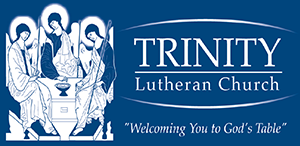
Many of you have heard this joke about change (or a variation thereof):
“How many Baptists does it take to change a light bulb?
Eight – seven to praise God for the new bulb and one to change the bulb.
“How many Episcopalians does it take to change a light bulb?
Two – one to pour the sherry and one to change the bulb.
“How many Lutherans does it take to change a light bulb?
Change?!?!? Did somebody say CHANGE? We don’t do that!”
Change is difficult. Transforming ourselves and our congregation to better serve God and move toward God’s preferred future for us is especially challenging. Many people feel that in a world of high paced change – and especially in this time of upheaval we call COVID — church is one place that should stay the same as much as possible. We’ve had to change enough in the church over the past year and a half. No singing, no fresh bread or traditional wine, small gatherings with masks, YouTube services, Zoom Bible Study, etc. I hear the voice that says, “There’s been enough change. Why can’t we just go back to doing things the same way we always have?”
There is a simple but harsh answer to that question. If we do not change, it is likely that we will die. Congregations are not static organizations, they are living organisms. The Church is the Body of Christ. If an organism is not changing and growing, it is dying. If a congregation is not changing to serve God and bless people more effectively, it will die.
That may not sound very encouraging, but look at it this way: Change doesn’t happen until the cost or pain of not changing is greater than the cost or pain of changing. Change isn’t easy, at least for about 95% of the population. We need to realize that change is really necessary before we will try something new. COVID was and is terrible, but it has forced us to make some changes.
Change does not mean that we alter our beliefs about Jesus or give up our Lutheran focus on grace or throw away the Bible. Nor does it mean that we should try a dozen new projects or programs every year or rip out the altar and the organ because they are “old fashioned.” Change just for the sake of change – especially in terms of programs and worship styles — will not help us be a blessing to our community. Reaching out to a changing world does not mean forgetting where we have come from or tossing away our traditions. It does mean seeking new ways to make the message of the gospel meaningful to people who may not understand the gospel or our ways of doing things. As Pat Keifert has said,
“Tradition is the living faith of the dead. Traditionalism is the dead faith of the living.” We want to respect tradition. We don’t want to get caught up in traditionalism. Claiming, “It’s always been that way” is not a statement that automatically wins an argument.
Faithful change means transforming the culture of our congregation and reclaiming the mission that God has given us. For many years in the United States, congregations were able to rely on the schools and other civic institutions to support Christian morals and beliefs. Those days are long gone. Nobody under 30 remembers that the
vacation centered around December 25 used to be called “Christmas Break” instead of “Winter Break.” Sunday mornings are now a primary time for youth sports. Some long for the days when the only thing that happened on Sunday mornings was worship services. Others rejoice that “Christendom” is no more. Whatever side of the fence you place yourself, I think you’ll agree that the situation has changed, and the new reality has been around for a while. The Church must learn new ways to speak and act. Communities of faith must find innovative ways to form people as disciples of Jesus because the other institutions in our society no longer do so – if they ever did. This isn’t primarily about new programs or projects. It is about fresh ways of thinking and loving.
As Trinity and First Lutheran come back together (we were one congregation until we split in 1881-82), we will all experience changes. Obviously, the people of First face more changes as they sell their building and give thanks to God for the ministry of their congregation which will no longer be carried out through the ministry center at 154 Orchard Street. However, as we navigate the future together, people who have worshiped at 20 Meadowlark Road for decades, as well as those who are new to that location, will collaborate to adapt to new realities.
As a congregation of disciples of Jesus, we need to learn to welcome the stranger into our world as well as learn to speak about our beliefs outside the church building. There are more and more people who do not see church as “home.” We need to move beyond the virtue of tolerance and toward the virtue of love, love that respects and engages other people. This means that we can speak with others about our faith without being pushy and without the false premise that “all religions are the same anyway.” (A notion which, by the way, most religious people in the world would find quite offensive.) We can listen to and speak to other people honestly and openly.
When we recognize that God is active in our lives and in our congregation, that realization can enable us to move toward the future God has in mind. God has a future that He is leading us toward. God has a mission for our congregation that includes being a blessing to the people in our community. We just need to work on seeing pieces of that future, discerning God’s will for us, and then getting on board where God will take us next.
